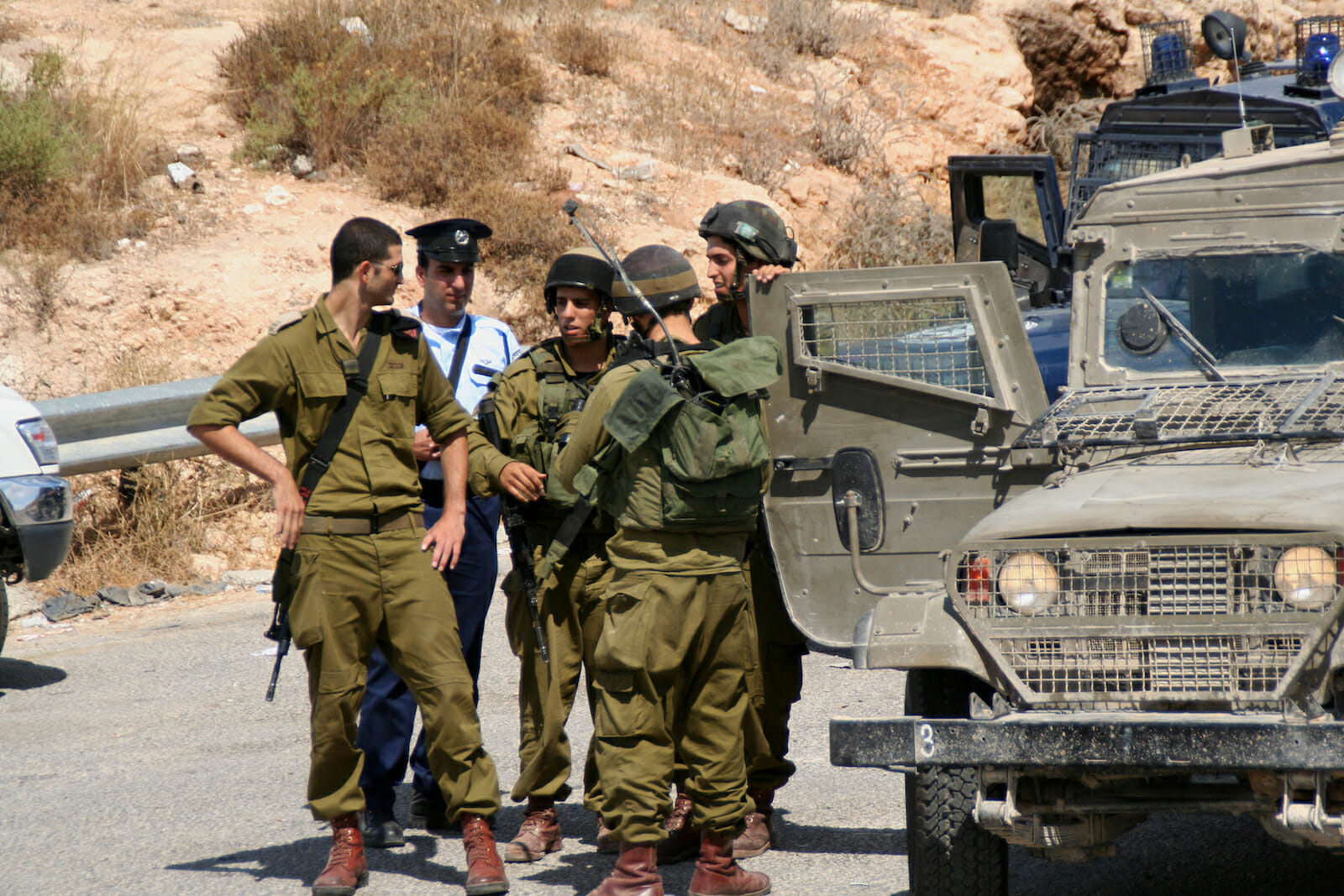
Israeli Settler Violence Offers Netanyahu Peace Pivot
A little over a month ago, Israeli settlers from the infamous Yitzhar compound stormed the neighboring Palestinian village of Asira al-Qibliya in the West Bank, firing rocks at the village’s homes and sending 24-year-old Fathi Assayara to a Neblas hospital with a gun wound to the neck. Israeli soldiers can be seen standing by as Yitzhar settlers, who faced stone throwing in return, fire on the Palestinians gathered.
Now, one month after the IDF promised a full investigation that has never materialized and five weeks after Israeli Prime Minister Benjamin Netanyahu formed a new coalition government that ostensibly freed him from the far-right Shas Party, the unaddressed Yitzhar debacle offers the Netanyahu government a vital opportunity to advance constructive negotiations.
By admitting Jerusalem’s inability to police the radical settlement, and disbanding Yitzhar before further violence ensues, Netanyahu can transcend the peace process failures of the past three years and pivot decisively towards constructive negotiations. The May 19 attack was merely one in a long line of violent encounters between Yitzhar and Asira al-Qibliya, a village of 2,800 forty minutes north of Ramallah.
Last December, approximately forty armed settlers surrounded the home of Ibrahim Makhlouf and his family, the last house on a narrow road that snakes up a cliff overlooking the shallow valley that separates the Palestinian village and Israeli settlement. Shouting in Hebrew the family could not understand, the settlers pounded on the door and pelted Ibrahim with rocks and mud when he climbed on the roof to gauge the number of settlers at his door. While the settlers eventually left, the incident left a cloud of fear over the Makhlouf home. “Our four-year-old daughter is unable to sleep through the night. We live in constant fear,” Ibrahim told me when I traveled to the Makhlouf’s home to hear their story this past January.
It is this flagrant disregard for peaceful coexistence that has characterized the settlement since it was first constructed in the mid-1980s. Then, it celebrated its proximity to Asira al-Qibliya by expropriating several thousand square meters of arable land from the Makhloufs, among other villagers. Even now, crops on land left to the villagers are often scorched by Yitzhar settlers. Yitzhar’s aggression is couched in and justified by the language of religious extremism: its Rabbi, Yosef Elizur-Hershkowitz, has gained notoriety in Israel for his 2009 book, The King’s Torah, in which he argues that it is permissible to kill Palestinian children if they will one day become Jewish enemies.
As indicated by the complicity of the IDF soldiers in last month’s attacks as well as those of June 2008, June 2009 and July 2011, among others, the Israeli government has done little to effectively curtail Yitzhar’s aggression. After the first of those attacks, then Israeli Prime Minister Ehud Olmert denounced “the phenomenon of (settlers) taking the law into their own hands and lashing out with violence” as “a pogrom against non-Jews.”
Yet a mere six months later, Netanyahu’s Shas-reliant coalition replaced Olmert who had been implicated on corruption charges. Little effort has been made to curtail settler aggression since. So it should be of little surprise that the Israeli human rights group B’Tselem reports that in last month’s incident, “the soldiers that were present did not take any measures to stop the settlers from throwing stones, lighting fires, and firing live rounds at the Palestinians.”
This is the utter vulnerability of the Makhlouf family: no state to protect it, and an occupying force unable to control the violent rampaging of its own extremists. Speaking of the complicity of the soldiers, Khadra Makhlouf, Ibrahim’s wife, told the Women’s Center for Legal Aid and Counseling, “No matter how much I tell myself I should not be afraid I cannot help it. It is a disturbing feeling to know we are completely on our own; nobody is there to help or protect us.”
Yet now, with Shas lacking influence in the Netanyahu government resulting from the Likud-Kadima coalition, Yitzhar’s unacceptable vigilantism offers Netanyahu a decisive opportunity to indicate a genuine commitment to the peace process. Whether the obstinacy of the past three years is, in fact, attributable to Shas or not, closing Yitzhar offers the opportunity to move beyond the intransigence of the Netanyahu-era peace process by locating that failure in Shas’ extremism. Closing Yitzhar would not mean an end to settlement construction, or joint custody of East Jerusalem, or even remote openness to a right of return—all of which will be necessary for sustainable peace. Nor is this to suggest that Netanyahu will, in fact, move in such a reconciliatory direction. What it is to say is that closing Yitzhar would at least represent a minimal commitment to the peace process– and that failure to seize the opportunity would indicate that Netanyahu, not Shas, is, in fact, the real barrier to peace.
